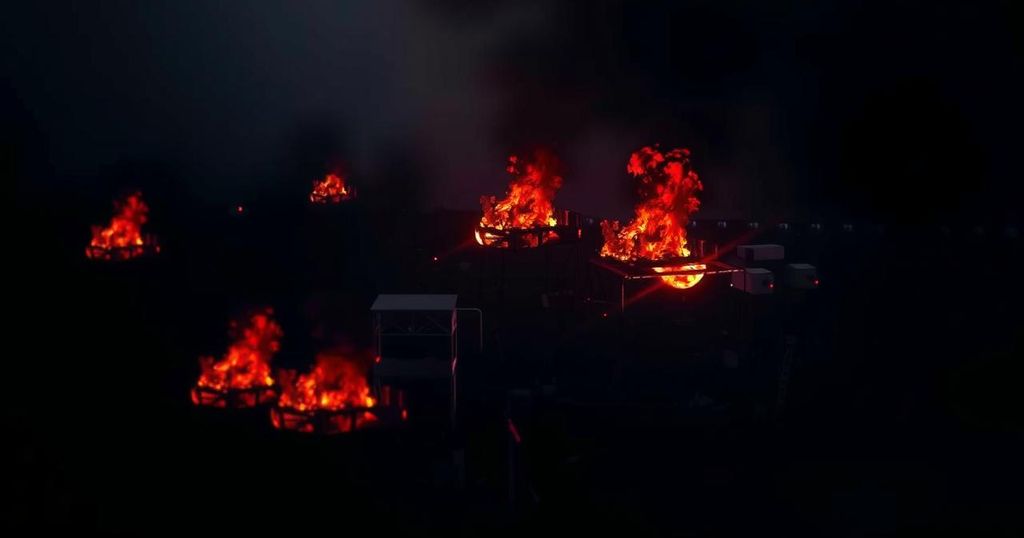Iraq has pledged its support for the reconstruction of Lebanon and Gaza following a ceasefire with Israel. Government spokesperson Basim al-Awadi emphasized Iraq’s essential role in mediating the ceasefire, promising ongoing assistance while addressing public concerns regarding voluntary salary deductions aimed at financing aid. Prime Minister al-Sudani called for an Arab-Islamic fund for reconstruction efforts. The Iraqi government is working to maintain regional stability while facing scrutiny over domestic financial measures.
Iraq has reaffirmed its dedication to assist Lebanon and Gaza following the recent ceasefire negotiated between Israel and Hezbollah. In a statement, government spokesperson Basim al-Awadi characterized Iraq’s involvement as crucial in fostering this ceasefire, labeling it a vital measure to prevent further regional conflicts. During an interview with Iraq’s state television, Al-Iraqiya News, al-Awadi remarked on the significance of stabilizing the situation in Lebanon and Gaza.
Al-Awadi stated, “The ceasefire in Lebanon is an important step that has steered us away from a full-scale war. It will also serve as a foundation for a ceasefire in Gaza.” He committed to ongoing support, emphasizing that Iraq would continue to assist until both regions achieve stability, also indicating intentions to contribute to their reconstruction efforts.
In response to concerns regarding the government’s proposal to deduct 1% from public employees’ salaries to support reconstruction in Lebanon and Gaza, al-Awadi clarified that participation in this initiative is voluntary. He assured the public, stating, “This deduction is not mandatory but entirely optional,” emphasizing that employee salaries are protected constitutionally.
In light of potential threats from Israel, al-Awadi emphasized that the National Security Council has devised strategies to safeguard Iraq’s sovereignty. He conveyed that proactive legislative and military measures will be employed to secure the nation. Furthermore, he illustrated Iraq’s pivotal role in mediating the ceasefire agreement.
Iraqi Prime Minister Mohammed Shia’ al-Sudani has advocated for an Arab-Islamic reconstruction fund during a recent summit, appealing for contributions from all nations, asserting, “Iraq’s commitment to aiding Palestine and Lebanon reflects our belief in humanitarian responsibility.” In addressing Iraq’s relationship with the United States, al-Awadi noted that future interactions will align with Iraq’s national interests, particularly during the administration of US-elect President Donald Trump.
The Iraqi government is striving to stabilize Lebanon and Gaza while simultaneously protecting its sovereignty, indicating its ambition for a prominent role in regional diplomacy and humanitarian efforts. However, this initiative faces domestic scrutiny over the legality of salary deductions meant for aiding Lebanon, prompting concerns from lawmakers within the Iraqi parliament.
The backdrop of this article centers on Iraq’s proactive engagement in Middle Eastern diplomacy, particularly concerning humanitarian aid and regional stability following the recent ceasefire between Israel and Hezbollah. Amid these challenging conditions, Iraq aims to reinforce its position as a mediator and supporter of Lebanon and Gaza, while also managing domestic expectations related to public expenditure and national security. The government’s proposed salary deductions represent a controversial strategy that reflects both the urgency of the situation and the complexities of governance within Iraq.
In conclusion, Iraq is taking a pronounced stance in supporting Lebanon and Gaza following the ceasefire with Israel by not only facilitating immediate humanitarian aid but also by proposing reconstruction initiatives. While commending its mediatory role, Iraq’s government faces challenges regarding public opinion on proposed salary deductions for aid. This dual focus on immediate assistance and long-term stability underscores Iraq’s growing ambition to be a central player in regional humanitarian efforts and diplomacy.
Original Source: www.newarab.com







